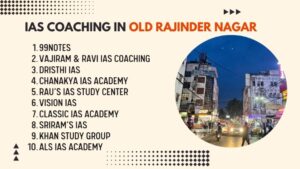23 April 2024 : The Hindu Editorial Notes PDF
The Hindu EDITORIAL
23-April-2024
1. Restoring earth’s right to ‘good health’
| Topic: GS1 – Geography – Effects of Climate change
GS3 – Environment – Environmental pollution and degradation Understanding climate change as a human rights issue is crucial for UPSC due to its impact on governance and policy. |
| Context |
| The article discusses landmark legal rulings recognizing climate change as a human rights crisis, urging for rights-based climate action and legal accountability, particularly in India. |
European Court of Human Rights Ruling:
- The European Court of Human Rights found the Swiss Government guilty of violating the rights of senior women citizens from KlimaSeniorinnen, due to inadequate actions to curb emissions.
- This decision highlights the growing recognition of climate change as a human rights crisis globally.
- It underscores the failure of governments to protect vulnerable groups, particularly women, from the impacts of climate change.
Supreme Court of India’s Ruling:
- The Supreme Court of India ruled that individuals have the right ‘to be free from the adverse impacts of climate change’ under Articles 14 and 21 of the Indian Constitution.
- This establishes a legal precedent in India, recognizing climate change as a threat to fundamental rights, including the right to equality and the right to life.
Global Climate Crisis:
- The World Meteorological Organization’s State of the Global Climate Report for 2023 indicates record-breaking climate indicators, including the hottest year on record, ocean heat levels, sea level rise, Antarctic Sea ice loss, and glacier retreat.
- These alarming trends highlight the urgent need for action to address the escalating global climate crisis.
UN Secretary General’s Message:
- UN Secretary General António Guterres emphasises the critical situation on International Mother Earth Day 2024, stressing humanity’s destructive impact on nature and the urgent need to restore harmony with the environment.
India’s Climate Action and Vulnerability:
- India has made significant progress in decoupling emissions from economic growth, achieving two NDC targets ahead of schedule.
- However, the country remains highly vulnerable to climate change, with over 80% of its population living in districts at risk of climate-induced disasters.
Legal Accountability and Climate Action:
- The legal recognition of climate change impacts within the framework of constitutional fundamental rights sets a crucial precedent for holding governments accountable for climate action.
- This approach can accelerate climate action by fostering a more rights-based perspective and encouraging integrated approaches between government, private sector, and civil society.
Pathways for Accelerating Climate Action:
Adoption of Overarching Regulation:
- Implementing an overarching regulation on climate change can enhance state capacities, drive allocation of resources, and promote ambitious climate action in India.
- Such regulation can strengthen climate governance, facilitate knowledge exchange, and foster coherence in policies and actions across states and territories.
Inter-ministerial and Inter-sectoral Approaches:
- Building on initiatives like the One Health initiative, inter-ministerial and inter-sectoral approaches can promote collaboration between various stakeholders in addressing climate change.
- Integrating a rights-based approach into core operations of the private sector, such as circular economy practices, can have transformative impacts.
Empowering Citizen Groups and Civil Society Organizations:
- Leveraging the court’s observations can empower citizen groups and civil society organisations to foster rights-based dialogues on climate action.
- These dialogues can help reconcile potential tensions between conservation efforts and renewable energy targets, ensuring holistic solutions to environmental challenges.
Cultural and Legal Recognition of Nature’s Rights:
- Initiatives like declaring ‘Mother Nature’ a ‘living being’ by the Madras High Court in Tamil Nadu reflect the cultural and legal recognition of nature’s rights.
- Utilising such judgments and observations can help restore the health of Mother Earth and safeguard future generations from the impacts of climate change.
| India’s vulnerability to climate change |
| India’s vulnerability:
● Highly Vulnerable Population: Over 80% of India’s population lives in districts at high risk of climate disasters like floods, droughts, and cyclones [CEEW Climate Change Vulnerability Index]. ● World Ranking: Ranked as the seventh most vulnerable country to climate extremes globally [Germanwatch 2022 Climate Risk Index]. ●Uneven Impacts: The southern states experience the most extreme weather events, while northeastern states face more frequent floods, and central/southern regions see harsher droughts [CEEW Climate Change Vulnerability Index]. Potential impact: ● Extreme Weather Events: India is susceptible to intensified cyclones, floods, and droughts due to climate change, impacting agriculture, infrastructure, and livelihoods. ● Water Stress: The Himalayan glaciers, a crucial water source, are melting rapidly, leading to increased water scarcity, especially in regions dependent on glacial runoff. ● Agricultural Impacts: Climate change disrupts monsoon patterns, affecting crop yields and food security for millions. Variability in rainfall patterns also leads to crop failures and loss of income. ● Health Risks: Rising temperatures exacerbate heatwaves and spread vector-borne diseases like dengue and malaria, posing significant health risks to vulnerable populations. ● Coastal Vulnerability: India’s long coastline faces threats from sea-level rise, causing erosion, saltwater intrusion, and displacement of coastal communities. ● Biodiversity Loss: Climate change threatens India’s rich biodiversity, including its forests, coral reefs, and mangroves, disrupting ecosystems and endangering species. ● Urban Challenges: Rapid urbanisation coupled with climate change increases the vulnerability of cities to heat stress, flooding, and water shortages, affecting millions of urban residents. |
| PYQ: (UPSC civil services prelims 2017)
Q.With reference to ‘Global Climate Change Alliance’, which of the following statements is/are correct? (2017) 1. It is an initiative of the European Union. 2. It provides technical and financial support to targeted developing countries to integrate climate change into their development policies and budgets. 3. It is coordinated by World Resources Institute (WRI) and World Business Council for Sustainable Development (WBCSD). Select the correct answer using the code given below: (a) 1 and 2 only (b) 3 only (c) 2 and 3 only (d) 1, 2 and 3 Ans: Option A
Mains: Q.1 Describe the major outcomes of the 26th session of the Conference of the Parties (COP) to the United Nations Framework Convention on Climate Change (UNFCCC). What are the commitments made by India in this conference? (250 words/15m) (UPSC CSE (M) GS-3 2021) Q.2 ‘Climate Change’ is a global problem. How will India be affected by climate change? How Himalayan and coastal states of India will be affected by climate change? (250 words/15m) (UPSC CSE (M) GS-3 2017) |
| Practice Question: Discuss the significance of recent legal rulings recognizing climate change as a human rights crisis, and its implications for governance and policy-making, with a focus on India. (150 Words /10 marks) |
2. Political space for disability rights, a sliver of hope
| Topic: GS2 – Social Justice – Vulnerable sections
The topic is crucial for UPSC as it pertains to constitutional amendments, human rights, and social justice advocacy. |
| Context |
| The article discusses the long-standing demand of the disability rights movement to amend Article 15 of the Indian Constitution to include disability as a specific ground for discrimination, highlighting recent promises in political manifestos and the need for greater political will. |
Introduction:
- Manifestos during election seasons often neglect discussions on the rights of persons with disabilities.
- Congress and CPI(M) promise to include disability as a ground for discrimination under Article 15 of the Constitution, sparking optimism in the disability rights movement.
Background and Demand for Amendment:
- Disability rights movement has long demanded a constitutional amendment of Article 15 to include disability as a specific ground for discrimination.
- UN Committee on the Rights of Persons with Disabilities reiterated this demand in 2019.
- Despite strides in disability rights globally, India has not addressed this omission.
- Adoption of the UNCRPD in 2006 and ratification by India in 2007, followed by the Rights of Persons with Disabilities Act in 2016, which did not amend Article 15.
- The Act provides limited equality and leaves scope for discriminatory actions under the guise of “legitimate aim.”
Importance of Constitutional Amendment:
- A constitutional amendment would elevate the right against discrimination for persons with disabilities from a statutory to a constitutional right.
- Constitution of India embodies principles of liberty, equality, and fraternity, restructuring relationships between individuals and the state.
- Inclusion of disability under Article 15 would rectify historical injustice and address social hierarchies.
Judicial Precedent and Limitations:
- In Navtej Singh Johar vs Union of India (2018), Supreme Court extended Article 15 protection to ‘sexual orientation’ as analogous grounds.
- Treating disability as analogous may extend Article 15 protection but does not replace the need for a constitutional amendment.
- Analogous grounds approach burdens litigators and overlooks systemic marginalisation faced by persons with disabilities.
Potential for Political Will:
- Promises in manifestos of Congress and CPI(M) indicate political will to address demands of disability rights movement.
- National Centre for Promotion of Employment for Disabled People (NCPEDP) and National Disability Network (NDN) launched a manifesto urging political parties to prioritise issues of disabled community.
- Hope that other parties will follow suit, signalling a shift in political discourse and addressing historical apathy towards disability rights.
Conclusion:
- Despite historical neglect, promises in manifestos and advocacy efforts signal a potential shift towards addressing the demands of the disability rights movement.
- A constitutional amendment to include disability under Article 15 is crucial for elevating the rights of persons with disabilities and rectifying systemic injustices.
| Potential impact of including disability under article 15 |
| ● Enhanced Legal Protection: Inclusion of disability under Article 15 would provide constitutional protection against discrimination, elevating the rights of persons with disabilities.
● Addressing Historical Injustice: Rectifies a longstanding omission in the constitutional framework, addressing historical marginalization and exclusion of persons with disabilities. ● Promoting Social Inclusion: Signals a commitment to fostering an inclusive society by recognizing the rights and dignity of persons with disabilities. ● Aligning with International Standards: Reflects India’s commitment to international conventions such as the UN Convention on the Rights of Persons with Disabilities. ● Strengthening Legal Remedies: Constitutional status provides stronger legal remedies against discriminatory practices compared to statutory provisions. ● Empowering Disability Rights Movement: Bolsters the advocacy efforts of disability rights organizations and empowers individuals to challenge discrimination. ● Shaping Public Perception: Sends a message of inclusivity and equality, shaping public perception and attitudes towards persons with disabilities. ● Institutional Accountability: Establishes institutional mechanisms to ensure accountability in addressing discrimination based on disability. ● Fostering Access to Opportunities: Facilitates greater access to education, employment, healthcare, and other opportunities for persons with disabilities. ● Advancing Social Justice: Contributes to the broader goals of social justice and equality enshrined in the Indian Constitution. |
| PYQ: (UPSC civil services prelims 2011)
Q. India is home to lakhs of persons with disabilities. What are the benefits available to them under the law? 1. Free schooling till the age of 18 years in government run schools. 2. Preferential allotment of land for setting up business. 3. Ramps in public buildings. Which of the statements given above is/are correct? (a) 1 only Ans: Option D |
| Practice Question: Discuss the significance of amending Article 15 of the Indian Constitution to include disability as a specific ground for discrimination, highlighting its implications for social justice and constitutional rights. (250 Words /15 marks) |
3. A lesson from Taiwan in quake resilience
| Topic: GS3 – Disaster and disaster management This topic is vital for UPSC as it pertains to disaster management, infrastructure development, and geological understanding. |
| Context: |
| The article discusses recent earthquakes worldwide, emphasizing Taiwan’s proactive earthquake preparedness measures as a model for other regions, and suggests lessons for India to enhance seismic safety in infrastructure development. |
Introduction:
- Earthquakes occur in specific regional bands due to tectonic movements, as evidenced by recent seismic activities in various parts of the world.
- Understanding the geological context and implementing effective disaster preparedness measures are crucial for mitigating earthquake risks.
Taiwan’s Earthquake Preparedness:
- Taiwan lies on the convergent boundary of the Philippine Sea and Eurasian plates, making it prone to frequent earthquakes.
- The 1999 Chi-Chi earthquake prompted significant administrative reforms in Taiwan, leading to the implementation of stringent building codes and disaster management measures.
- Taiwan has developed advanced earthquake monitoring networks, early warning systems, and conducted widespread awareness campaigns to enhance public understanding of earthquake risks.
- The government incentivizes residents to improve the quake resistance of buildings and constantly updates seismic safety requirements for new and existing structures.
Lessons for India:
- India, undergoing infrastructural expansion in tectonically unstable regions like the Himalayas, must prioritise earthquake safety measures.
- All infrastructural projects should adhere to seismic safety regulations to mitigate potential risks.
- Learning from Taiwan, India should focus on constructing safer engineered structures and enforcing compliance with seismic codes.
- Indian seismic codes, such as IS 1893, are based on seismic zonation maps and local earthquake activity, guiding construction practices to prevent building collapse.
- India can explore traditional architectural styles with inherent earthquake resistivity in certain regions, promoting their rediscovery and adoption.
Conclusion:
- Recent earthquakes worldwide highlight the importance of earthquake preparedness and effective disaster management strategies.
- Taiwan’s proactive approach towards earthquake safety serves as a valuable example for India to emulate, emphasizing the need for stringent building codes, advanced monitoring systems, and public awareness campaigns.
- Implementing these measures can significantly reduce the impact of earthquakes and safeguard lives and infrastructure in earthquake-prone regions.
| PYQ: Discuss about the vulnerability of India to earthquake related hazards. Give examples including the salient features of major disasters caused by earthquakes in different parts of India during the last three decades. (150 words/10m) (UPSC CSE (M) GS-3 2021) |
| Practice Question: Discuss the significance of Taiwan’s earthquake preparedness measures as a model for disaster management, and assess their relevance for India’s infrastructure development. (250 Words /15 marks) |
For Enquiry

23 April 2024 : PIB Summary for UPSC

23 April 2024 : The Hindu Editorial Notes PDF

23 April 2024 : Indian Express Editorial Analysis

Best 10 IAS Coaching in Old Rajinder Nagar

22 April 2024 : Daily Current Affairs Quiz

22 April 2024 : Daily Answer Writing

22 April 2024 : The Hindu Editorial Notes PDF

22 April 2024 : Daily Current Affairs

22 April 2024 : PIB Summary for UPSC

22 April 2024 : Indian Express Editorial Analysis
April 2024 PIB 23 April 2024 : PIB Summary for UPSC PIB Summary for UPSC
23-April-2024
1. PRESIDENT OF INDIA PRESENTS PADMA AWARDS 2024
Topic: GS2 –…
April 2024 The Hindu Editorial 23 April 2024 : The Hindu Editorial Notes PDF The Hindu EDITORIAL
23-April-2024
1. Restoring earth’s right to ‘good health’
Topic: GS1 – Geography…
April 2024 Indian Express 23 April 2024 : Indian Express Editorial Analysis Indian Express Editorial Analysis
23-April-2024
1. The cost of health
Topic: GS2 – Governance –…
Blogs Upsc Best 10 IAS Coaching in Old Rajinder Nagar IAS Coaching in Old Rajinder Nagar: The choice of the IAS coaching institute is very crucial in the…
Daily Quiz 22 April 2024 : Daily Current Affairs Quiz 22- April 2024 : Daily Quiz…
mains answer writing 22 April 2024 : Daily Answer Writing Mains Answer Writing
22-April-2024
Q1) The Green Revolution, with its focus on land productivity, created…
April 2024 The Hindu Editorial 22 April 2024 : The Hindu Editorial Notes PDF The Hindu EDITORIAL
22-April-2024
1. Preparing India for water stress, climate resilience
Topic:…
April 2024 Daily Current Affairs 22 April 2024 : Daily Current Affairs Daily Current Affairs
22-April -2024- Top News of the Day
1. Global Coral Bleaching Crisis: Urgent Action…
April 2024 PIB 22 April 2024 : PIB Summary for UPSC PIB Summary for UPSC
22-April-2024
1. PM inaugurates 2550th Bhagwan Mahaveer Nirvan Mahotsav on occasion…
April 2024 Indian Express 22 April 2024 : Indian Express Editorial Analysis Indian Express Editorial Analysis
22-April-2024
1. Cures, care, competition
Topic: GS2 – Governance…





